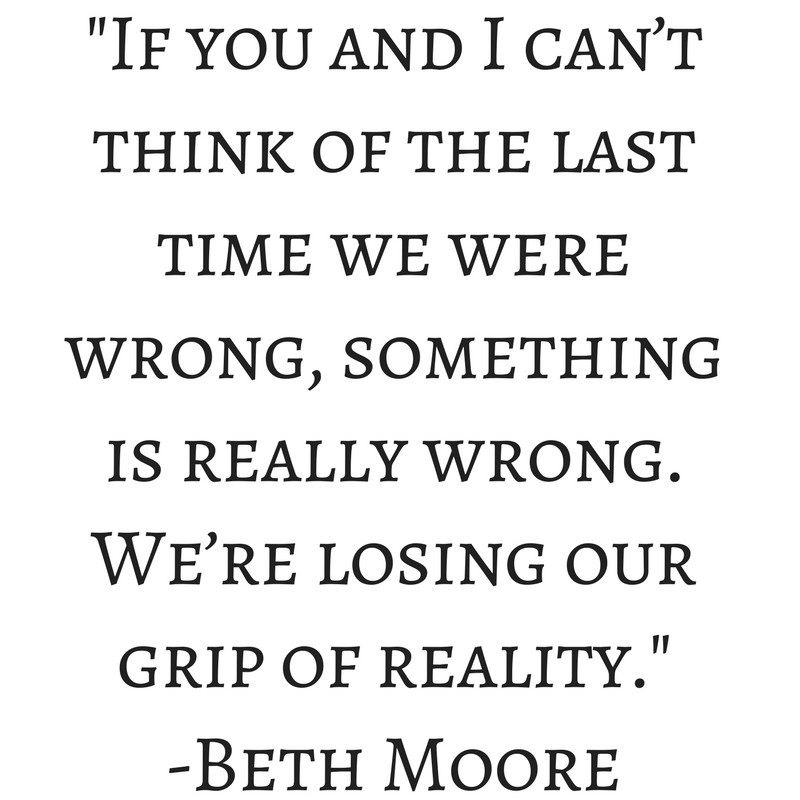
A blind spot is not a phrase you will find in the Bible, but it is a principle mentioned often in Scripture. A blind spot is an area in our lives that is negatively impacting us but that we cannot see. Like a blind spot when you are driving a car, spiritual blind spot that goes ignored can also lead to massive wrecks in life.
Blind spots are character defects that hurt others and ourselves but that we have yet to identify as real problems. Sometimes blind spots are not totally unknown to us, but the level of their dysfunction in our lives is undervalued and easily dismissed.
The Bible warns us many times about blind spots and gives us tools to overcome these hidden sins that are hurting us in visible ways.
The Bible Says We Are Responsible Even for Sins in Our Blind Spots
The temptation when talking about “spiritual blind spots” is that we can assume they are excusable in the eyes of God. If we are blind to our sin, how can God judge us for it? However, Psalm 19:12-13 (NIV) says:
But who can discern their own errors? Forgive my hidden faults.Keep your servant also from willful sins;may they not rule over me. Then I will be blameless, innocent of great transgression.”
 The Bible says we must ask for forgiveness over hidden sins and willful sins. David, the psalmist, says “Who can discern their own errors?” This statement is not used as an excuse but rather as a plea for God’s help. We know this because the next line is “Forgive my hidden faults.”
The Bible says we must ask for forgiveness over hidden sins and willful sins. David, the psalmist, says “Who can discern their own errors?” This statement is not used as an excuse but rather as a plea for God’s help. We know this because the next line is “Forgive my hidden faults.”
God must forgive us of our blind spots because we are always responsible for our own sin. So, like David, we must be diligent in seeking God’s help to expose in us what we cannot see in ourselves because whether we see our issues or not, we will suffer the spiritual and natural consequences of our sins.
According to the Bible, Only the Holy Spirit Can Show Us Our Blind Spots
Spiritual blindness is a huge topic in the Bible. If we were to boil it down to just the nuts and bolts, however, the Bible says that without the Holy Spirit, we are all spiritually blind (1 Corinthians 2:6-16, Luke 4:18). Our spiritual blindness not only hinders us from seeing God accurately, it also hinders us from seeing ourselves properly. We think our sinfulness is not that bad and that our goodness is better than it really is.
Blind spots cause us to misjudge our sinfulness, and thus we need the Holy Spirit’s help in bringing biblical conviction to our lives (John 16:8). Psalm 139:23-24 states:
Search me, O God, and know my heart! Try me and know my thoughts! And see if there be any grievous way in me,and lead me in the way everlasting!”
When the Holy Spirit is in our lives, there will be regular epiphany moments about our own issues. Suddenly we will see negative patters in our character that have been their our whole lives. But without the Spirit we could not see those blind spots. We will wonder, “How have I missed this for so long?”
We need God’s loving correction even when we think there are no problems because we all have blind spots the Holy Spirit is seeking to expose to us in his timing.
The Bible Says We Need Other People to Help Us See Our Blind Spots
Beth Moore states, “Christian leaders who can’t be regularly challenged will overtime unhinge. Who gets to say to us, ‘You’re getting bizarre’? If we only listen to those who think just like us, we’ll never think we’re wrong. If you and I can’t think of the last time we were wrong, something is really wrong. We’re losing our grip of reality.”
The importance of having other Christians in our lives is that they can help us see the areas in our life we are blind towards. The Bible says in Galatians 6:1-5:
Brothers, if anyone is caught in any transgression, you who are spiritual should restore him in a spirit of gentleness. Keep watch on yourself, lest you too be tempted. 2 Bear one another’s burdens, and so fulfill the law of Christ. 3 For if anyone thinks he is something, when he is nothing, he deceives himself. 4 But let each one test his own work, and then his reason to boast will be in himself alone and not in his neighbor.5 For each will have to bear his own load.”
The Bible says we are responsible for repenting of our own spiritual blind spots, but the Bible also says other people are crucial when it comes to actually identifying the flaws in ourselves we cannot recognize.
According to the Bible, Everything Should Be Brought Into the Light, Including Our Own Blind Spots
The Bible consistently uses imagery of light when it comes to God and righteous living. It uses darkness and blindness to symbolize evil and sin. To overcome spiritual blind spots, we must choose to live in the light. This means we are regularly spending time in prayer, in God’s word, and in fellowship with other Christians. To live in the light means we actively seek to expose all sin in our lives. I John 1:5-8 explains:
This is the message we have heard from him and proclaim to you, that God is light, and in him is no darkness at all. 6 If we say we have fellowship with him while we walk in darkness, we lie and do not practice the truth. . . . 8If we say we have no sin, we deceive ourselves, and the truth is not in us.”
Blind spots are described in 1 John 1:6, 8. Here the Bible says we can “walk in darkness, we lie and not practice the truth . . . we deceive ourselves.” Thankfully the Bible not only warns us of this danger of self-deception towards our own sin, but it also gives us the solution. 1 John 7-10 explains:
But if we walk in the light, as he is in the light, we have fellowship with one another, and the blood of Jesus his Son cleanses us from all sin. 8 If we say we have no sin, we deceive ourselves, and the truth is not in us. 9 If we confess our sins, he is faithful and just to forgive us our sins and to cleanse us from all unrighteousness. 10 If we say we have not sinned, we make him a liar, and his word is not in us.”
The solution is to walk in the light, as God is in the light. We must have fellowship with other Christians, and consistently seek the cleansing blood of Jesus as we confess our sins.
Notice, too, that the Bible says if we do consistently have blind spots that we are unwilling to repent of, “we deceive ourselves, and the truth is not in us . . . if we say we have not sinned, we make God a liar, and his word is not in us.”
Therefore, if we do not want to deceive ourselves, the truth must be in us. If we do not want to call God a liar, we must make sure his word is in us. Blind spots occur when we to not expose ourselves to the truth, to Jesus, to God’s presence, and do not fill ourselves with Scripture. When we do this, the Bible says the blind spots will be revealed and we will be living in the light.